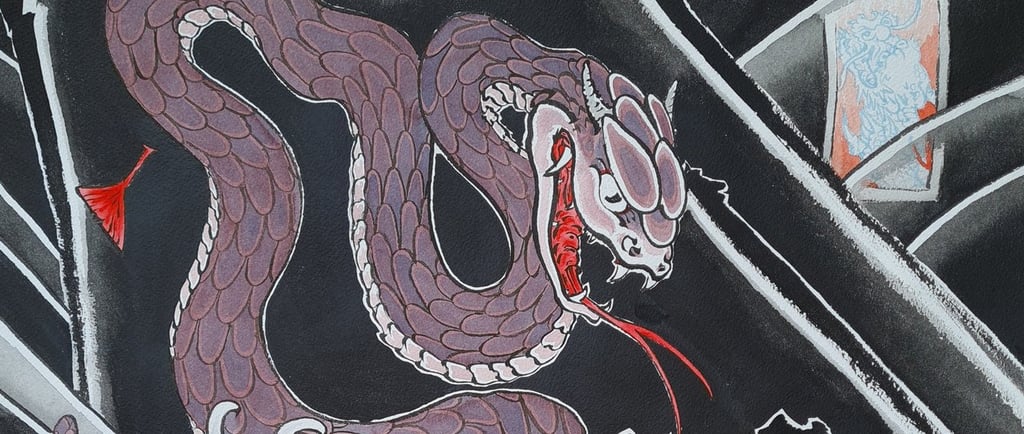The snake (Japanese: Hebi 蛇)
Japanese snake tattoo meaning
TATTOO MEANINGS


The Meaning of the Snake in Japanese Culture, Art, and Tattoos
The snake (Japanese: Hebi 蛇) is one of the most powerful and fascinating symbols in Japanese culture. From ancient mythology to modern tattoo art (irezumi), snakes carry a wide range of meanings: protection, wisdom, transformation, danger, and divine power.
🏮 The Snake in Japanese Culture and Mythology
Guardian and Protector
In Japanese folklore, the snake is often seen as a sacred creature connected to the goddess Benzaiten (弁財天), the deity of music, eloquence, and water. People believed snakes could guard homes and bring good fortune.Water and Fertility
Since snakes were linked to rain and rivers, they symbolized agricultural fertility and the harvest. In rural Japan, killing a snake was thought to cause drought.Transformation and Rebirth
Because snakes shed their skin, they became symbols of renewal, healing, and even immortality.Mythical Legends
One of the most famous stories is the battle between the storm god Susanoo and the giant eight-headed serpent Yamata-no-Orochi (八岐大蛇).
Folklore also tells of snakes transforming into women—sometimes as seductresses, sometimes as protectors.
🎨 The Snake in Japanese Art
During the Edo period (17th–19th centuries), snakes frequently appeared in ukiyo-e woodblock prints. Artists depicted them as mysterious, divine, or dangerous creatures.
In Kabuki theater, female characters cursed by jealousy or love often transformed into serpents, symbolizing destructive passion.
🖋 The Snake in Japanese Tattoo Art (Irezumi)
In Japanese tattoos, snakes (hebi) are a popular and highly symbolic motif. Their meaning depends on the context and design:
Protection – A snake tattoo is believed to guard against illness, misfortune, and betrayal.
Wisdom and Strategy – Snakes represent patience, observation, and clever thinking.
Wealth and Prosperity – When combined with coins, waves, or flowers, they symbolize abundance and good luck.
Feminine Energy and Sensuality – Because of their connection to rebirth and transformation, snakes are often linked to female power and sexuality.
Dual Nature – A snake can represent both life and death, protection and danger—making it a powerful symbol of balance.
🔥 Popular Snake Tattoo Combinations
Snake + Skull → overcoming death, fearlessness.
Snake + Peony (Botan) → strength and beauty, masculine and feminine energy.
Snake + Dragon → wisdom and power, control over the elements.
Snake + Tiger → yin and yang, the eternal struggle of opposites.
🐍 Final Thoughts
In Japanese culture, the snake is a sacred and ambivalent symbol—dangerous yet divine, feared yet respected. In Japanese tattooing, snake designs embody protection, transformation, sensuality, and strength, making them one of the most meaningful motifs in irezumi.
If you are considering a Japanese snake tattoo, it’s worth exploring these deep cultural roots to understand the power and symbolism behind the design.








